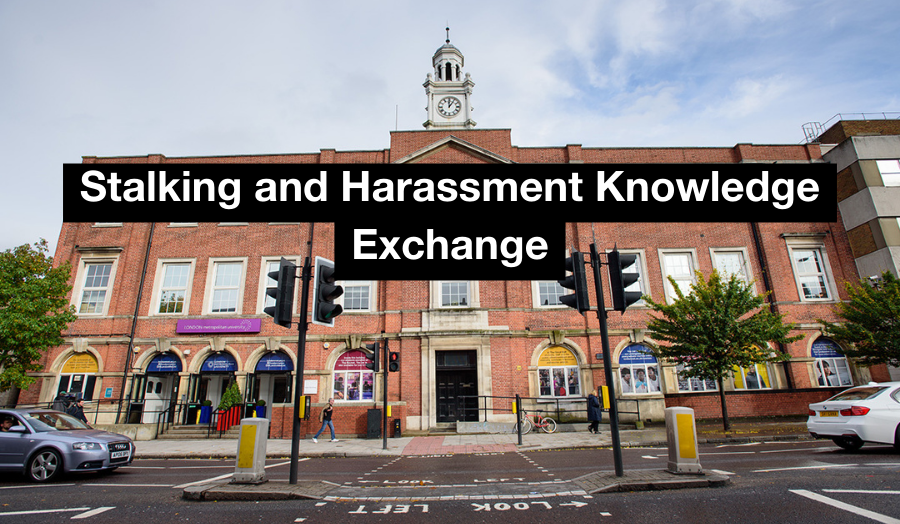The conference brought together academics, police and third sector organisations that support victims of stalking and harassment.
Date: 24 August 2023
On Thursday 13 July, London Met hosted the second Annual Knowledge Exchange conference, chaired by Dr Emma Short, the University’s Senior Lecturer in Psychology, and in partnership with The National Stalking and Harassment Offences Working Group, led by Deputy Chief Constable (DCC) Paul Mills QPM.
A network of academics, police and practitioners came together for a full-day event, to share knowledge and best practice in developing strategies to protect victims, and manage offenders of stalking and harassment. Over 60 delegates attended from various organisations across the UK to hear presentations and research findings – a significant increase on last year’s turnout.
The conference aimed to foster further research and improvements in the study of harassment, with the hope of encouraging more academic research into areas like stalking and cyber-stalking.
Dr Emma Short, who led on organising the conference, said: “It was a valuable and productive day; new connections were made and a strong commitment to developing communication and collaboration was established."
"Thank you to everyone who attended and engaged in discussion, to Alex who organised the event and John who supported in delivery. They were phenomenal.
“The aim was to get the right heads in the room, build partnerships, share best practice and we did that. Hopefully the next step will be to generate new research from these discussions to support more victims of stalking harassment.”
The event was opened by London Met’s Professor of Psychology, Chris Chandler who spoke about the aims of the network and how they are reflected in the values of the University, followed by DCC Paul Mills, who highlighted the progress being made by these partnerships and the areas of need. Specifically: early identification of stalking, increased effectiveness in the management of risk and improvement of prosecution rates.
Presentations included Alan Underwood from the Stalking Threat Assessment Centre discussing their work on perpetrator intervention programmes; Deputy Chair, Rachael Wheatley from the University of Derby, presenting work on early intervention with ex-intimate partner stalkers and Adam Sadullah, Research Assistant at Vulnerability Knowledge and Practice Programme outlining work done to identify how far victims’ voices are represented in police service design.
A particularly powerful presentation came from Professor Clive Ruggles, Chair and Co-Founder of the Alice Ruggles Trust, a charity created after his daughter Alice was murdered by a stalker in 2016. He spoke strongly about the need to educate people from an early age on how to recognise stalking, as well as coercive and controlling behaviours.
Posters of the latest research were displayed, including that from London Met’s Dr Chelsea Mainwaring (Psychology). Chelsea and Emma are recent additions to London Met, and bring with them research interests in stalking, technology-facilitated violence, and image based sexual abuse. They are also founding members of a new research group in forensic cyberpsychology, and would welcome the involvement of law, criminology, policing, politics and cybersecurity colleagues at the University to join this research group.
Stalking is a pattern of persistent, repeated, and unwanted attention that disrupts lives, creating a fear of violence in those experiencing it. It is considered to be a gendered crime, with 1 in 5 women being affected in their lifetime and 1 in 10 men.
Harassment also affects many, with 27% of women and 16% of men reporting that they had experienced at least one form of harassment in the last year, according to the Office for National Statistics (ONS). It is recognised that these behaviours present huge challenges for the police, and there is a real demand for change.

